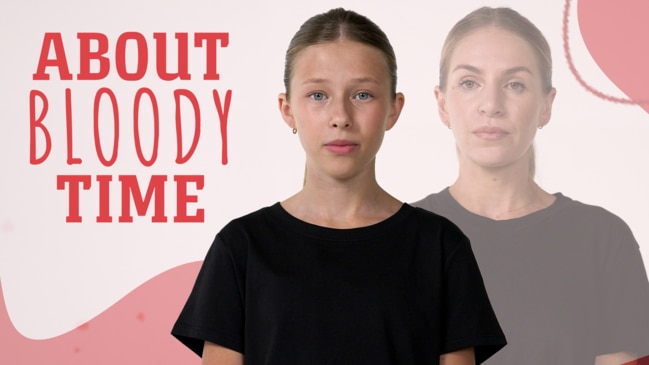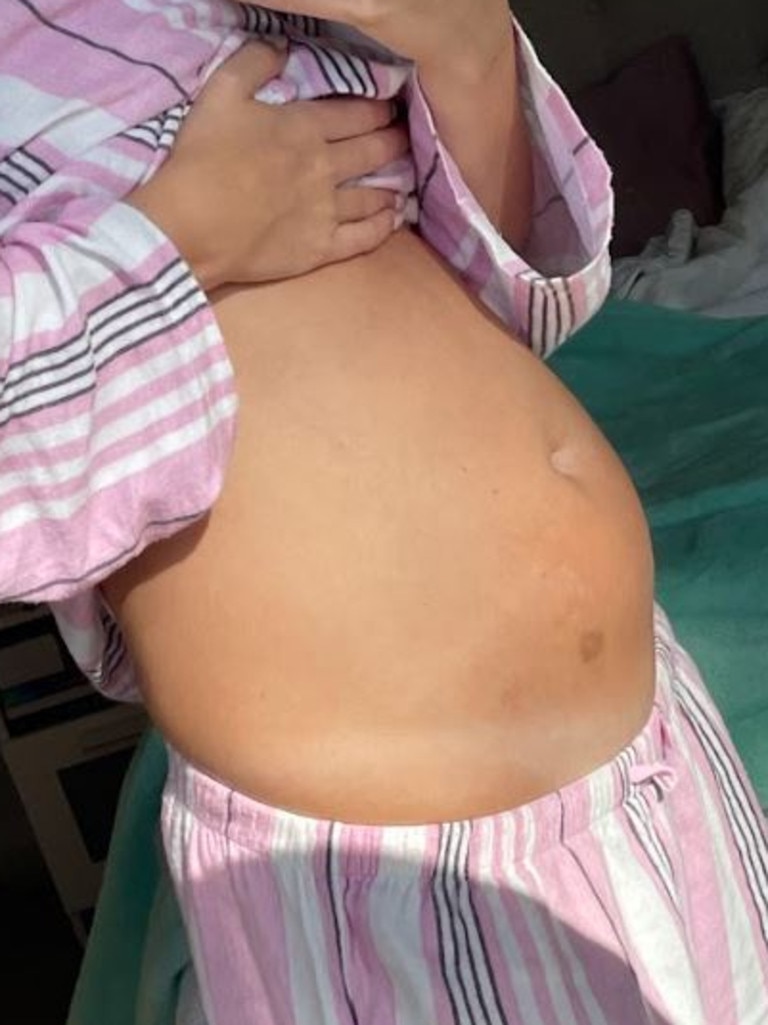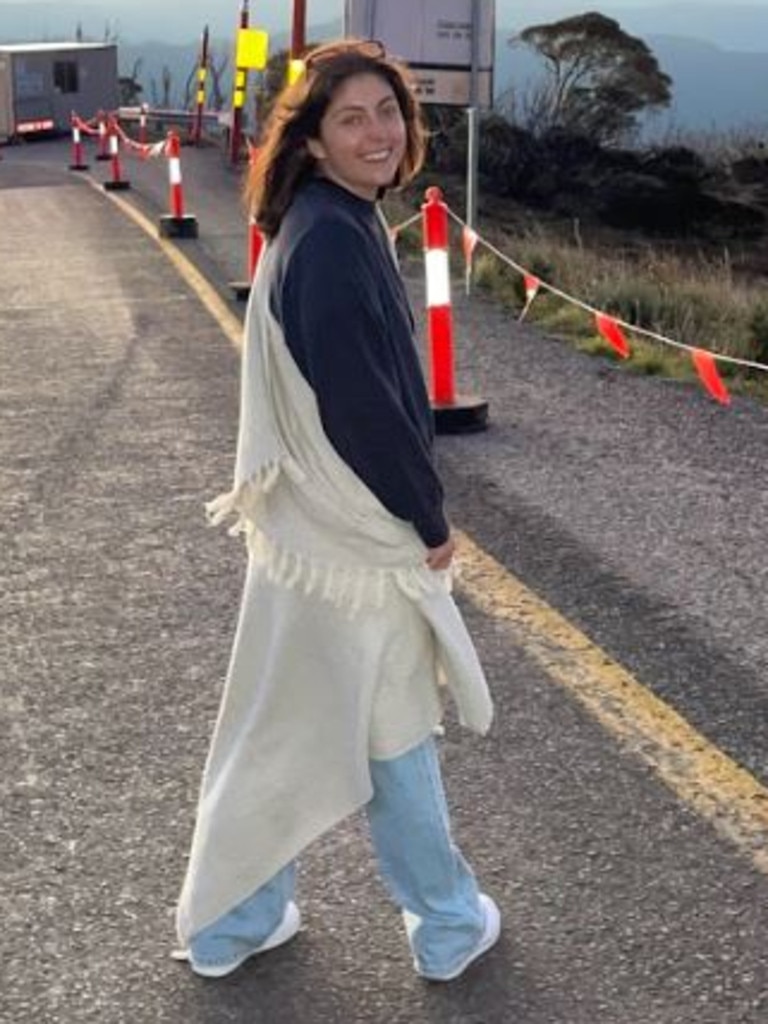‘My life has never been the same after endometriosis’
A woman who suffered through years of debilitating pain has shared how her life has never been the same since doctors handed her a horror diagnosis.

Ever since she was a little girl, Maddy Forster has dreamt of becoming a mum.
She always imagined what it would be like to fall pregnant, carry her own child and bring them into the world.
But, while it may be one of the most natural things a woman can do, it’s not always a smooth process.
At 22 years old, Ms Forster was officially diagnosed with severe stage 4 endometriosis – a disease in which endometrial tissue, which is similar to the lining of the uterus, grows outside it in other parts of the body, causing severe pain and fertility issues.
In addition, she also suffers from adenomyosis – a condition where endometrial tissue grows into the muscle of the uterus – as well as rheumatoid arthritis, which she was diagnosed with at just 12 years old.

These chronic conditions can all compromise fertility, which motivated Ms Forster to go through the physically draining and financially taxing process of freezing her eggs, which she felt would serve as an important backup in case she cannot fall pregnant naturally.
“Throughout this whole endometriosis journey, there has been a scary thought that I might never be able to have kids,” she told news.com.au.
“The one dream I’ve had ever since I was a child was to be a mother one day. It’s still something I want more than anything, I long for it,” she says, sharing that treatment for endometriosis has potentially further compromised this dream.
“My ovaries are now borderline polycystic, and there was a time where I was getting heaps of cysts.
“This all started happening after surgeries to treat the endo. It was such a kick in the guts.”


Unable to hold down a ‘normal’ job
Ms Forster’s symptoms are sometimes so debilitating and painful that she is unable to get out of bed.
The unpredictability of her condition has made holding down a “normal” nine-to-five job difficult.
It’s a struggle she shares with many other women who suffer from endometriosis.
In a news.com.au survey of 1700 Australian women with the condition, 83.4 per cent said they had to take time off work due to it. Of those, 57.1 per cent had not told their employer they suffer from the condition.
Due to this uncertainty, Ms Forster decided to start her own business as a personal stylist, a career change she says has given her more fulfilment and success than she ever could have dreamt of.
The Melbourne-based entrepreneur says her business, Mad About Fashion, “helps people regain their confidence through their style”, with services such as wardrobe revamps and personal shopping.
“The truth is that nobody wins in a situation where someone has a chronic illness in the workplace,” she says.
“I never had luck with any of my jobs and always felt like I was letting people down.
“I even worked at a business that was all women, and the conversation was like ‘What? You’ve just had surgery, and now you need more time off?’
“They were not understanding. I think workplaces need more education.
“Another place said, ‘I don’t want you here if you’re not at 100 per cent’, but that just isn’t a possibility for me.”
She explained that most of her bosses have been understanding about her health issues when she was first hired, but sadly those issues would become a problem down the line.


“I’m always upfront about my illness and all my managers had told me it was something they could handle until it wasn’t,” she said.
“I truly understand the difficulty in having an employee with a chronic illness, but honestly it is out of my control.
“I’m fortunate that my managers were mostly understanding until I got made redundant due to Covid in my first full time job.
“This was shortly after requesting time off due to completing my first ever egg harvest.”
‘Dreaded that time of the month’
As a child, Ms Forster was diagnosed with rheumatoid arthritis and, after getting her first period a few years later, she began to experience debilitating pain throughout all stages of her cycle.
“I dreaded that time of the month,” she says.
“When I first went to see my GP for my period pain, they put me straight on the contraceptive pill.
“They didn’t even ask me any other questions or wanted to know about my family history. It was just, ‘here you go, next’.

“It didn’t help anything. I dreaded that time of the month because the pain I’d always experience would be even worse.
“But I trusted my GP. I think we all do. So I just accepted it for as long as I could.”
Ms Forster was later referred to a gynaecologist, but the extent of her condition still wasn’t clear.
“She operated on me and said I had ‘little bit of endo’ but that it was nothing to be worried about,” she explains.
“She wasn’t concerned because nothing was showing up on my internal scans. They then removed some of it, but she was never clear about what she saw.
It wasn’t until Ms Forster presented to a hospital emergency department in severe pain that she felt anyone took her concerns seriously.
“Fast forward to the very start of Covid, and I was in absolute agony from the pain. I called my specialist in tears, and was told to take panadeine forte, which is a strong pain killer.
“It didn’t help. I could feel the pain all in my right ovary, and it is often mistaken for being appendicitis.
“I ended up going to the ED at a private hospital and told them I wasn’t going home until someone told me what was wrong.”
Unfortunately, endometriosis sufferers not having their complaints taken seriously by doctors is common.
In a news.com.au survey of more than 1700 Australian women who suffer from the condition, 54.4 per cent said they had mostly negative experiences with doctors, with 17.3 per cent saying they felt they had never been taken seriously when seeking medical help for endometriosis.


‘Not good enough’
In 2020, after a series of tests and her third extensive surgery, it was revealed that Ms Forster was suffering from endometriosis.
She went on to have two more surgeries but claims those performing them were not “trained properly” to remove the diseased tissue.
Currently awaiting her sixth surgery, which will take place in April 2024, she is now raising awareness for the disease in the hope others will not have to go through similar struggles to get a diagnosis.
“I have been told by doctors that my disease is genetic and will continue to grow back due to the botched surgeries,” she explained.
“I only wish I could go back in time and have a proper surgery for my first.
“There is such a confusion and struggle of seeing highly trained specialists who all tell me different treatment options. There’s no clear indication of what the ‘right’ thing to do is,
“All treatments come with a lot of risks and side effects. It is like I’m in a constant cycle of confusion and unknown.
“My life has never been the same since my official diagnosis. The treatment options are not good enough and they only cause more issues.
“There is that old fashioned mentality that the doctor is always right, but that is not always the case. You need to advocate for your own health.”
Medicare is failing women and it’s About Bloody Time things changed. Around one million suffer from endometriosis. There is no cure. Help is hard to come by and in rural or regional areas, it’s virtually impossible. We are campaigning for longer, Medicare-funded consultations for endometriosis diagnosis and treatment. Read more about the campaign and sign the petition here
About Bloody Time is an editorial campaign by news.com.au that been developed in collaboration with scientists recommended by the Australian Science Media Centre, and with the support of a grant from the Walkley Foundation’s META Public Interest Journalism fund.







